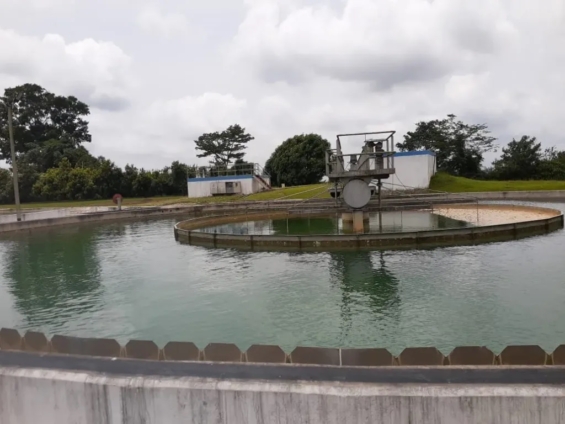The Communications Manager of Ghana Water Company (GWCL) for the Western and Central regions has expressed concern over the pollution of water bodies that serve as sources of drinking water for many.
According to Nana Yaw Barima Barnie, it is unfortunate that money has been prioritised over people's lives, stating that poisoning drinking water sources is effectively an attempt to harm the population.
Speaking on Top Story on Friday, August 30, Mr Barnie expressed that the extent of pollution has reached a point where it no longer seems reasonable for the Ghana Water Company Limited (GWCL) to continue treating water in the country.
He explained that GWCL used to use aluminum sulfate to treat suspended particles in water, but it is no longer effective due to the highly polluted state of the Pra River.
“We are spending four times more than what we were spending in the past when we were using alum. We are now spending four times more now that we are using polyelectrolyte because that is more expensive,” he said.
His comment comes after the management of Ghana Water Company Limited in the Central Region announced recent challenges with water supply in Cape Coast, Elmina, and surrounding communities.
According to them, the recent demand-supply gap is due to inadequate raw water received at the Sekyere Hemang Water Treatment Plant (WTP) caused by illegal mining (galamsey) activities.
In a press statement signed and issued by the Central Regional Office of GWL on Friday, August 30, it noted that pollution of the Pra River, especially at the catchment area for abstraction, has significantly reduced water intake to the barest minimum.
It further mentioned that the plant is currently able to produce only about 7,500m³/day, a quarter of its installed capacity, noting that the situation has caused severe inconvenience to customers and consumers and apologised for the disruption.
In light of this, Mr Barnie said the GWCL may not be able to continue with the treatment of water and warned that the Sekyere Hemang Water Treatment Plant (WTP), which supplies raw water to the region, might eventually be forced to shut down.
“We are treating water and getting only a quarter of the capacity of the plant… People will now have to be running helter-skelter looking for where they can get water,” he added.
Latest Stories
-
GPL 2024/25: Gold Stars beat Vision FC to retain top spot
11 mins -
Ebo Whyte returns with ‘The 4Play’
33 mins -
2024/25 Ghana League: Heart of Lions sink Legon Cities to go third
1 hour -
Bright Simons: DBG, Ghana’s top development bank, goes for the jugular
2 hours -
Governance and Entrepreneurship consultant demands global support for Africa’s young farmers
2 hours -
Ghanaians reminded to prioritise regular health check-ups
2 hours -
Salah brace sends Liverpool 8 points clear
2 hours -
Leicester City sack manager Steve Cooper
2 hours -
Akwasi Sarpong wins AIBs 2024 Award for BBC OS coverage of Israeli hostage release
2 hours -
Gospel musician Adeline Baidoo shares inspiring story of triumph over adversity
2 hours -
Kwesi Yankah: Escape from Ghana
3 hours -
Musician DeThompson DDT drops new single Happiness
3 hours -
Ukraine’s Grain Initiative raises over $200m, provides lifeline amid global food crisis
4 hours -
Dancehall queen Spice donates to students of 3 basic schools in Accra through MYO Global Foundation
4 hours -
Kamal-Deen Abdulai urges Nanton to help NPP break the 8
4 hours

